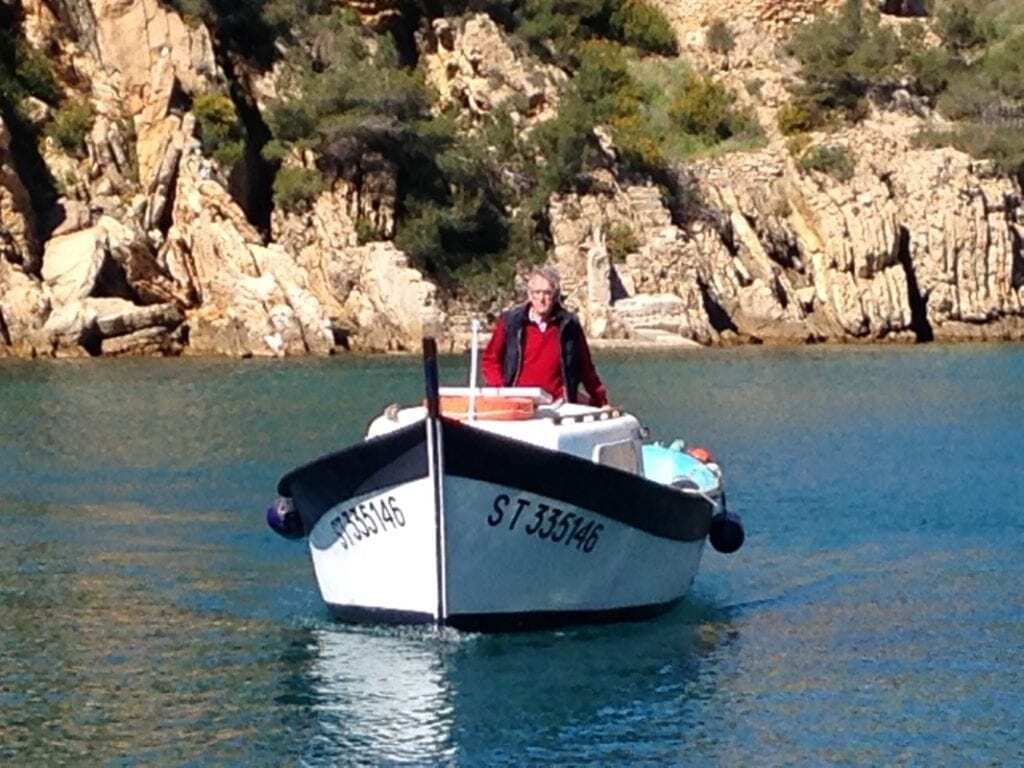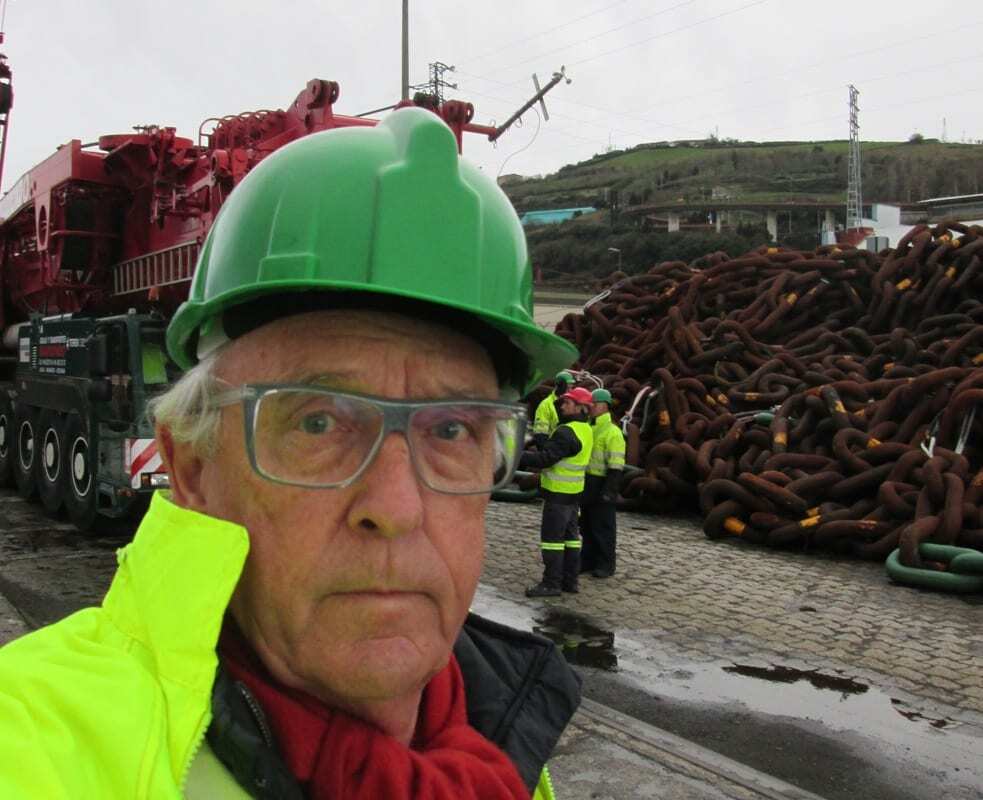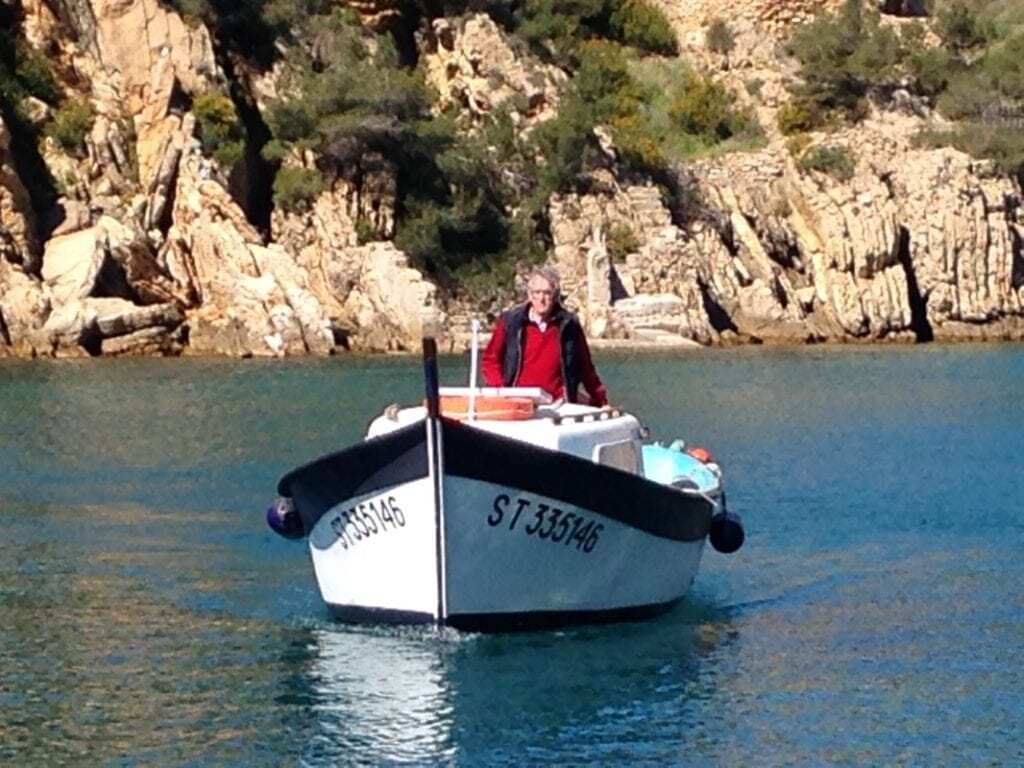Nils Hammar, I understand you are a Swedish national, how did you end up in France?
Correct. I was lucky to have a year in Paris just after my military service. Twelve years later this helped to be considered suitable for a position in France. After six years in Paris, I spent a long period outside Europe. I returned in 1996 to CMA CGM in Marseille. As my wife is French, we have settled down close to Marseille after my retirement.
Tell us about how you got into shipping originally, your background and why / how did you choose shipping instead of say banking or finance or even journalism?
I was indeed rather undecided in the beginning. After studies at the Stockholm High School of Economics, I had the luck to be chosen by Unilever as a Management trainee. After a couple of interesting years of marketing soap and washing powder, I felt that I wanted to try something else. Transport and shipping had always attracted me, so I joined Scandinavian Airlines airfreight department. The task was interesting: to show that airfreight, even though more expensive than sea, could bring great economies by reducing the stocks. At the time SAS was however a very hierarchic and conservative company. Unfortunately my immediate boss considered a young graduate as a threat, and I was isolated in a corner. After a short period of frustration, I applied for a post in Cargolux, which had just been acquired by the Salén shipping group. And they proposed instead a post in Salén Reefer Services. And since then it was shipping all along.

Elaborate on the various positions you have held with various shipowners & shipping companies and tell our readers a bit about what your responsibilities were. In which countries did you live and tell us a bit about actual life there. I understand you know quite a bit about West Africa.
Salén was an excellent company to work for. During my first two years I was responsible to sell our reefer services to the Eastern block, i.e. USSR and Eastern Europe. It was exciting to travel in these areas in the beginning of the 70’s, during the cold war. Then Salén bought a liner service, the Swedish East Africa Line, which was in a joint service with the French shipping company Delmas-Vieljeux. As Salén had no experience in liner shipping, they decided to close the Stockholm office and send two guys to Paris. And I was one of them. At the time we operated with general cargo vessels from North Europe, all around Africa (the Suez Canal was closed from 1967 to 1975) to East Africa and all the way up to the Red Sea. When the Canal finally reopened, we introduced, as a complement, a direct ro/ro service to Jeddah. In 1978 I had to choose between a future in Sweden with Salén or to go with Delmas.
I chose Delmas, who proposed me a post, on condition that I first accept to be seconded to the container terminal in Apapa, Lagos in Nigeria. At the time there was major port congestion, with some 420 vessels (most of them loaded with cement) waiting on the roads for a berth. Our task was to organize the container traffic, in order to ensure that the regular container lines could get in and out in reasonable conditions. After five years , Delmas offered me the post as Owners Representative in Lagos. Later I assumed the management of WASA (West African Shipping Agency), owned 40% by Delmas. A very interesting period in a country full of problems, but also with a great job satisfaction when you were able to solve at least a few of them.
Delmas was then taken over by the Bolloré group in 1991. After 14 years in Nigeria, they sent me to New York to manage a small shipping line, the AAEL (America-Africa-Europe Line). Our biggest shippers were the U.S. oil industry to Nigeria and Angola. We shipped all sorts of break-bulk cargo and containers, and, surprisingly, the second-hand clothing business, which is huge. Every three weeks we had 300 to 400 40’containers stuffed to the brim with shirts, jeans, shoes and more.
I am sorry to say that the line never managed to make a steady positive result. After my departure in 1996, it was reorganized, struggled for another couple of years before being closed down. An ex-colleague who was now working with CMA in Marseille, proposed me to apply for a post with them. That is how I ended up with CMA, which later became CMA-CGM. I was responsible for the Eastbound container flow from North Europe to the Mediterranean, the Middle East and the Far East. To be frank, containers become a bit boring in the long run.
In 2003 we booked a first paper factory from North Europe to Ningbo in China, including a very important part of huge break-bulk pieces. About 12 shipments over a period of one year, all loaded on CMA-CGM’s regular container service. Everything went perfect and the concept was a great success. It was followed by a number of other projects. When I was due for retirement, I proposed to the management to create a special project department, in order to develop and strengthen CMA-CGM’s presence in the break-bulk sector. When I finally left three years later, there were five full-time staff in the department. Today they are in several offices world-wide with 30/40 staff.

I understand that you are still active as a consultant and chairman of Martin Bencher Group, tell our readers about what a consultant and chairman actually does.
When I left CMA-CGM, the Martin Bencher Group was the biggest customer for break-bulk cargo. The management of MB was kind enough to propose me to take a seat on the board, and I ended up as Chairman. It is a very positive and interesting company, which gives me great inspiration and satisfaction. The role of the Chairman is of course to give (hopefully good and sound) advice to the management of the company. At my own time I have a very pleasant retirement with quite a lot of moving around, including a yearly visit to Sweden in the spring for 2-3 months.
In your view has the power of networking become more important in shipping in recent years? What is your take on the future of shipping given the consolidations we have seen most recently with CMA CGM snapping up APL, Cosco snapping up CSCL and just last week Maersk snapping up Hamburg Sud? With giants such as these what advice can you give our readers (especially the small or medium sized companies)? What can they do to get their voice heard?
Clearly networking is very essential for business in general. You can pick up a lot of interesting business by communicating positively. The consolidation trend will probably continue for quite some time, in all sectors of shipping. The shipping companies were already quite big. I don’t think it will make a big difference for the small or medium sized forwarders. They will just have to try to establish a good and reliable relation with the players who are still around.
How do you keep fit? I understand that you are 65+, how do you find the energy to take on consultancy and chairmanship roles in a shipping business that is highly competitive?
You can easily add another 10 years. Having an activity that interests you is great stimulation. On top of the business I have a small 9-hole golf course 4 km from my house, where I go 3 or 4 times a week. I also have the Mediterranean which is a 5OOm walk away and is swimmable for 8 – 9 months per year.
Do you plan on ever leaving shipping totally?
Nope!
Finally what kind of good advice can you give youngsters thinking of a career in shipping?
Shipping is a fascinating world, although it goes up an down all the time. If you want a thrill keep going and Good Luck!

Interviewee:
Nils Hammar
hammarnils@wanadoo.fr

